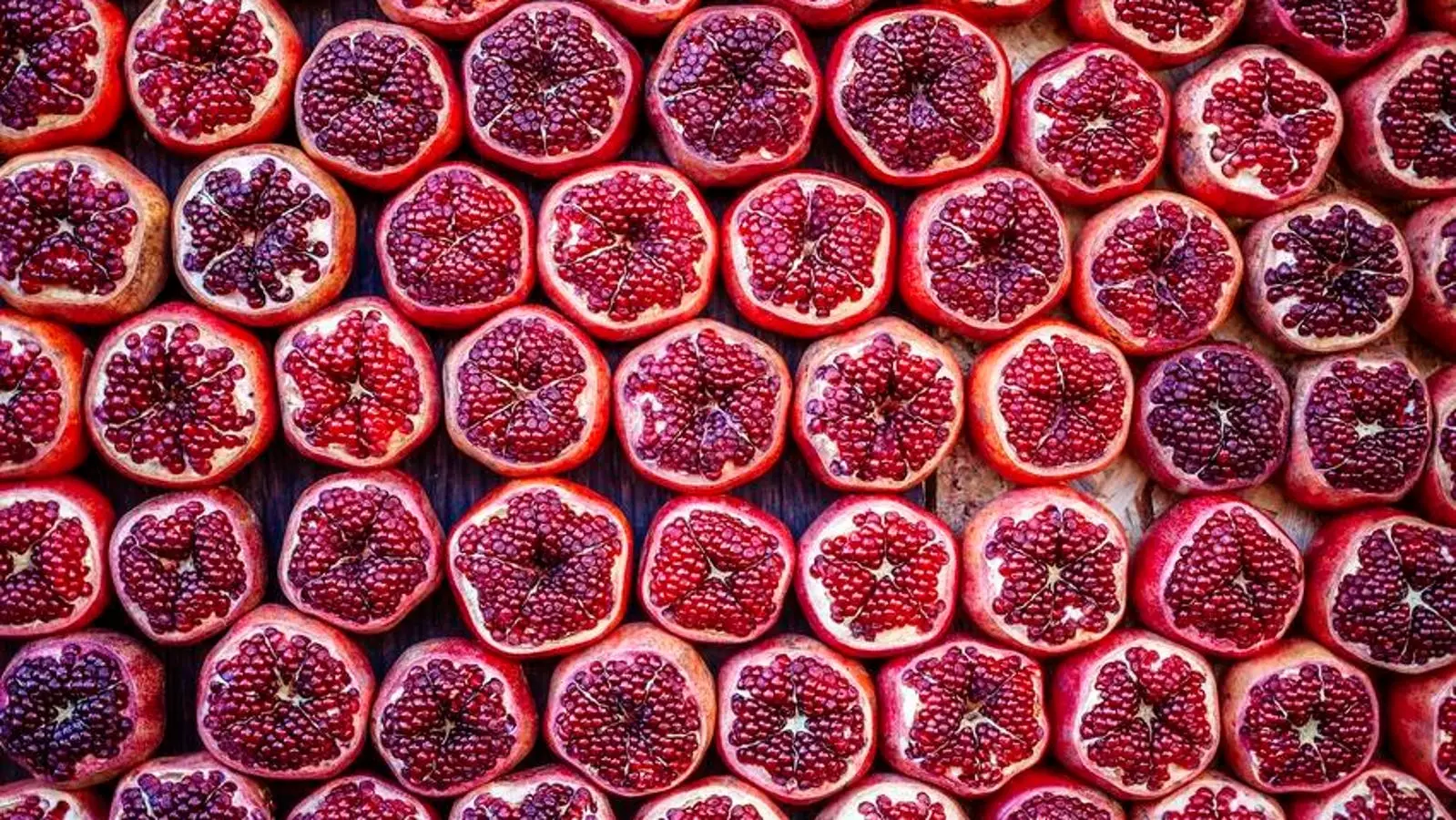Once a staple in the tales of ancient civilizations, the pomegranate has taken a meteoric rise in contemporary culture, especially within the health food scene. This vibrant fruit is now celebrated not just for its rich symbolism and historical significance, but also for its incredible nutritional properties. With projected global sales ascending to a staggering $10.6 billion by 2033, pomegranates have transitioned from mere background players in the agricultural game to star attractions in functional food innovation. This explosion in popularity isn’t just a passing trend; it’s a marrying of history and modern health consciousness.
A personal encounter with pomegranates during a visit to Azerbaijan revealed their profound significance. In the hauntingly beautiful landscape of Nagorno-Karabakh, still scarred from conflict but teeming with vibrant pomegranate trees, the fruit serves as a symbol of survival and renewal. The striking contrast of ruby-red pomegranates growing amidst the remnants of war reflects a narrative of resilience, signaling that life continues, despite adversity.
The Symbolic Heart of Azerbaijan
In Azerbaijan, the pomegranate—locally known as “nar”—is interwoven into the fabric of national identity and culture. Cultivated across 25,000 hectares of orchards, it is deeply engrained in local traditions, festivals, and storytelling. The fruit is not merely a food item but rather a cultural emblem, representing abundance, prosperity, and the continuity of Azerbaijani life. Unlike other major producers such as India or Iran, Azerbaijan’s unique climate and traditional agricultural practices yield pomegranates that are not only flavorful but also carry an essence of heritage.
The Goychay region, revered as the pomegranate capital, boasts over 60 indigenous varieties and adds more than 200 pomegranate types to its repertoire. This variety is a manifestation of cultural respect and commitment to sustainable farming, where farmers prioritize flavor and quality over mass production. Each pomegranate harvested represents a dedication to tradition, where meticulous handpicking favors ripeness and complexity over sheer yield.
Nutritional Powerhouse Meets Culinary Delight
Beyond its cultural significance, the pomegranate possesses impressive health benefits, making it a darling among nutritionists and food enthusiasts alike. Known for being loaded with antioxidants, low in calories, and gut-friendly, it embodies the characteristics that modern consumers prioritize in their diets. The fruit’s popularity has surged as it is incorporated in countless recipes, from pomegranate-infused smoothies to exotic pomegranate bark. Social media has only amplified this craze, with scrolling viewers captivated by the aesthetic appeal of its jewel-like seeds.
However, the pomegranate’s true magic lies in its versatility. It has transcended its role as a mere ingredient to become a culinary star that enhances various dishes—from savory stews to bright salads. Azerbaijani cuisine brilliantly showcases its adaptability, with traditional dishes steeped in history, like Nar Govurmasi—braised lamb with pomegranates—offering robust flavors that tell a story of time-honored culinary practice.
A Festival of Culture and Community
The Goychay Pomegranate Festival is a delightful embodiment of the fruit’s cultural prestige. It transforms the region into a carnival of colors, sounds, and tastes, celebrating not only the pomegranate but also the unity and pride of the Azerbaijani people. Recognized by UNESCO for its cultural significance, the festival attracts thousands each year, showcasing artisanal products, traditional music, and sumptuous dishes. It stands as a powerful reminder of how food and culture intertwine, inviting everyone to partake in a shared history steeped in generations of tradition.
Azerbaijan’s burgeoning reputation in the pomegranate market is notable. The country has seen a remarkable rise in export value—an increase of 35% in a single year—indicative of the global community’s appetite for high-quality produce with rich narrative.
A Bright Future Amid Global Challenges
The future of Azerbaijani pomegranates shines brightly against the backdrop of global climate challenges. As larger producers face obstacles in consistency and quality, Azerbaijan’s unique climate conditions make it a biologically promising locale for high-quality pomegranate cultivation. This allows the possibility for expanded exports not only of fresh fruit but also of an array of value-added products such as juices and natural cosmetics.
As consumers become increasingly discerning, seeking foods that represent authenticity, artistry, and sustainability, the pomegranate is positioned favorably. Its role isn’t merely as a superfood but rather as a bridge connecting agricultural heritage with modern health trends. In a burgeoning world where consumers gravitate towards products with stories, the humble pomegranate emerges not just as a nutritious option but as an emblem of cultural vitality and agricultural pride. With its myriad benefits and rich symbolism, this little fruit is set to tastefully make its mark across the globe.


Leave a Reply